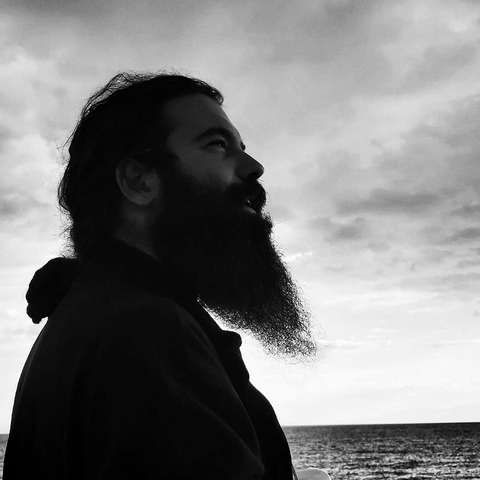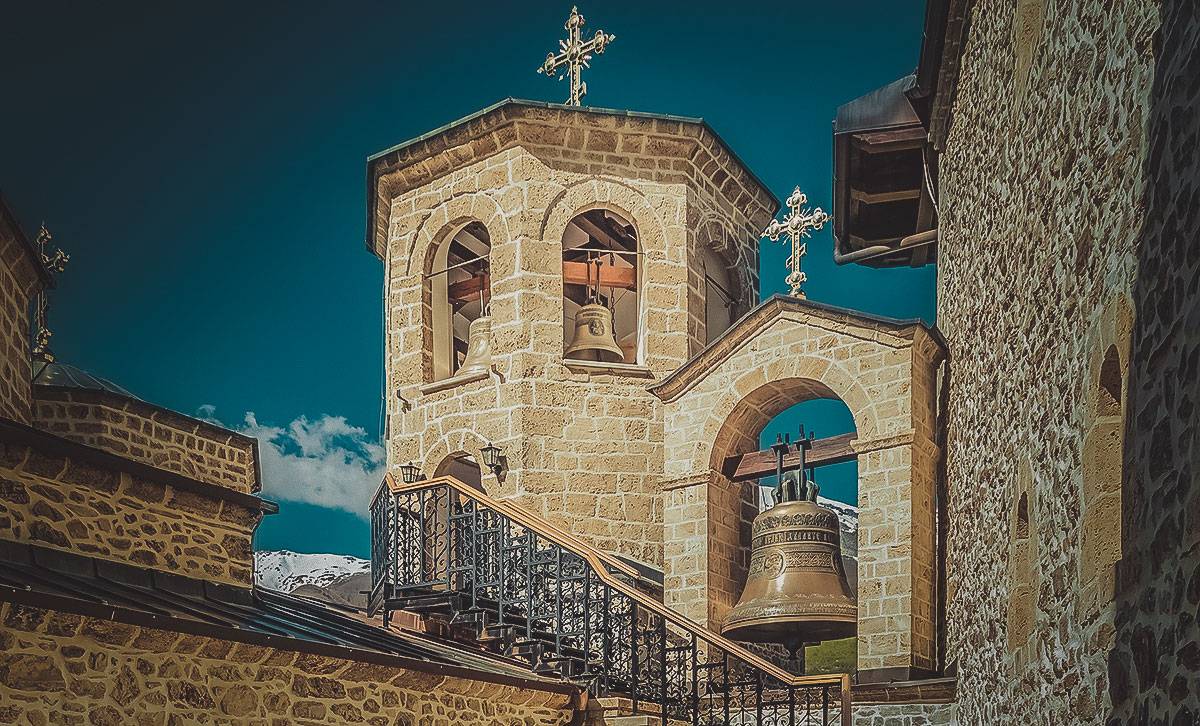In every thousand years a rare flower blossoms at the Bigorski Monastery, testifying of another kind of beauty – not of this world. This is that exact beauty, that element, the fifth one, which is the very essence and meaning of the well-known four elements. It is that same thing which many enlightened and wise philosophers placed in the centre, as the essential meaning of enlightenment, therefore confirming that “Beauty will save the world”.
This film is about that particular “Beauty”, which has already saved the world once…
In fact, the film “A millennial witness of the Light” is a bouquet of ever-fresh flowers from the thousand years old garden of St. John the Baptist at the Bigorski Monastery.
Amid the distortions caused by the numerous ideologies which emerge from all the corners of our daily life, being privileged to approach this film as an author meant to stand fearlessly in the front lines of the rebellion… that’s the rebellion which Walters speaks about in the film.
The real, the final rebellion!
The rebellion which smells like love and blazes with nobility in the life of Walter is but a very small stone in the great mosaic which represents the life deed of Elder Parthenius.
I cannot claim that I know many Bishops, still I can say for sure that I know a certain Elder.
It’s not at all easy to talk or write about Father Parthenios, a fact that even Heromonk Cyril confirmed in the film. You can just imagine how harder it is to portrait such a person, who has struggled for 30 years now to live in the image and likeness of Christ. In God’s Providence he was the Abbot chosen to put a conclusion of the Bigorski Monastery millennium. One of the most interesting facts, from a profane point of view, is that although he doesn’t have any biological offspring, he happens to be the father, literally speaking, of thousands of his spiritual children, whom he cherishes, matures, and leads with great love on the spiritual path, and in life in general.
No doubt, we are talking about a very simple man with very complex and hard assignments given by God.
We managed to shot the interview with Bishop Parthenius only at the last mnute, in the final quarter of the shooting process. After this interview and his statements, I made myself promise that I would “re-edit” the film in the sense of better portrayal of his words – it was undoubtedly worth it. At this stage the film was just about to migrate to post-production.
Re-editing a movie is very similar to re-making of a boat, with one big difference, that in the first case, your family thinks that you have done practically nothing. You know, if you fail to repair the car – the engine will not start, while as if you fail to repair the ship, it will sink. During these interventions, there was not supposed to be even a slightest gap in the narrative construction of the film.
Thus we immediately started with the synthesis of abstract intentions into concrete interventions in the film, which meant that the process was reopened on all levels, there was no longer even a single one of the chronological paradigms. And it was like this, until the very end of the production stage, which also did not remain completely immune. I would like to express my deepest gratitude to the editors Goran Kostadinov and especially Branko Blazhevski for the great understanding they have shown me. The latter one was given the privilege to even close the film, put the cherry on the top or the cross of the church, as it may be more appropriate to say in this context.
Undoubtedly, many things went contrary to the requirements of the film’s academic logic. At first it was difficult for me to digest (understand) it, until I realized that this film does not serve our side of logic, but rather His!
His own!
This was an open, vivd film in all of the stages of its existence – from being ours to becoming yours. In that organic process, I often happened to percieve myself as a mosaicist, who patiently traces and painstakingly develops the connecting, secondary elements of a masterpiece, having first “completed” the basic partitions of the composition. Wonderful impressionistic, documentary movie experience – after more than 4 years, this is how I would articulate the process in a most accurate and brief manner.
Now, being at the end, when we give you the film and from ours it becomes yours, I wonder how I never felt fear, in the moments when many important people, in and around the film, stopped believing that it would ever happen at all…
Then a spontaneous joke was born. Answering the question: “When will the film about the millennial jubilee be finished?”, I would abruptly answer with a solemn voice: “At the celebration of the second millennium jubilee”.
In fact, there was never even a smallest space of a doubt that the film might not happen, because of the blessing of our Lord Jesus Christ, the intercession of St. John the Baptist, of St. John of Debar, of Archimandrite Arsenios and the prayers of Bishop Parthenius, to whom I am especially grateful, as well as to all the members of the team, without whom this documentary would not have seen the light of day.
Also, I can’t but mention the monks of Bigorski, who, in spite of their aversion towards being filmed, still humbly revealed their serene and God inspired everyday life to our cameras, in order for us to show the entire world their monastic feat at Bigorski.
In any case, it was an experience difficult to put in words, as if you are travelling with a time machine, but you can neither go back nor rush forward in time, instead you go only up, to the eternity, while in fact you are constantly in the same place: at Bigorski.
I wholeheartedly invite any author, who would be given a chance in life to do something, if anything, for the benefit of a monastery, of certain monks, to do that without a doubt. And if he is blessed enough, as I was, that these monks happen to be the brothers of Bigorski… Go for it, just do it!


